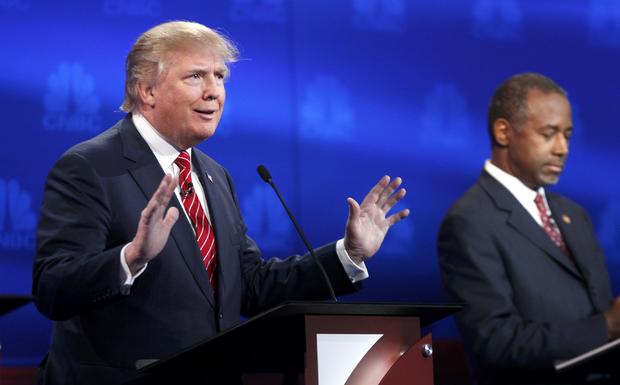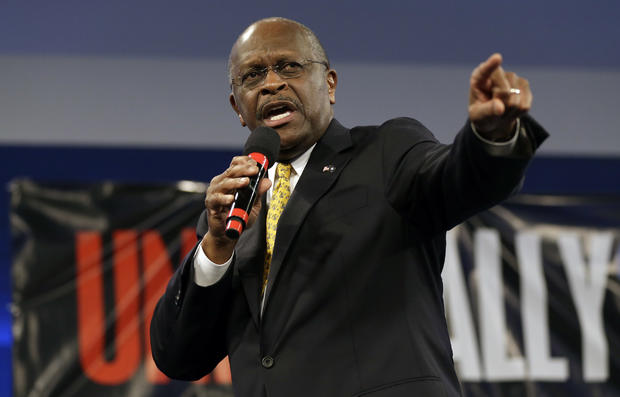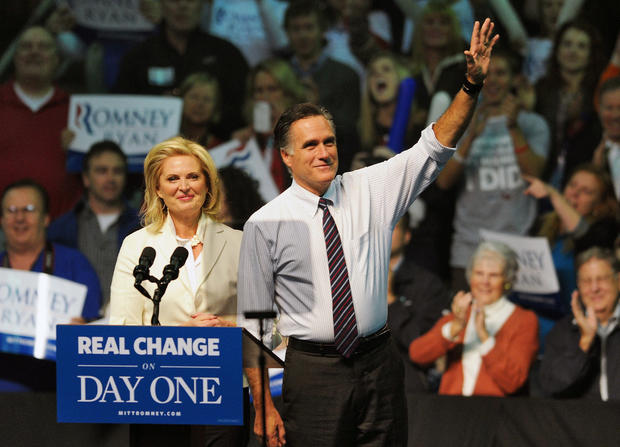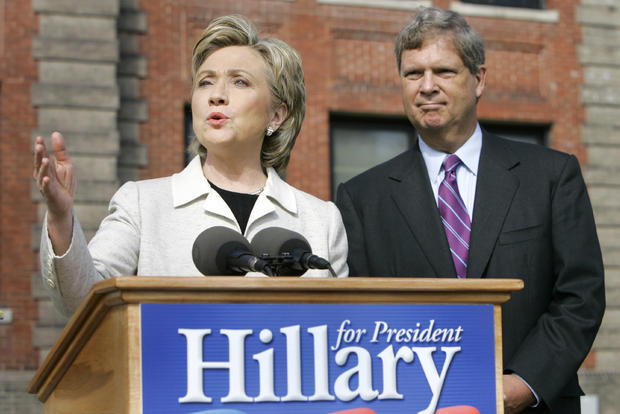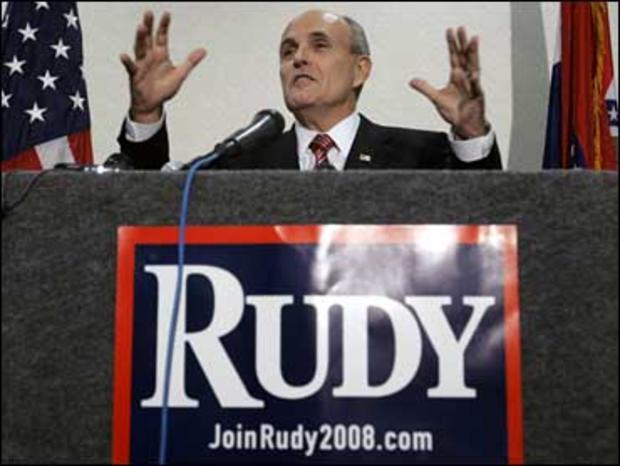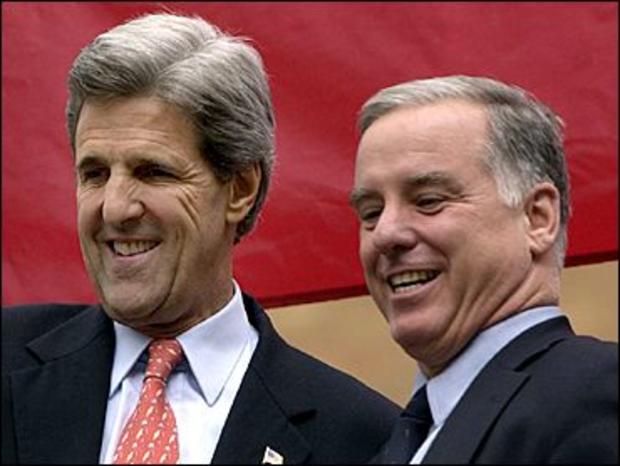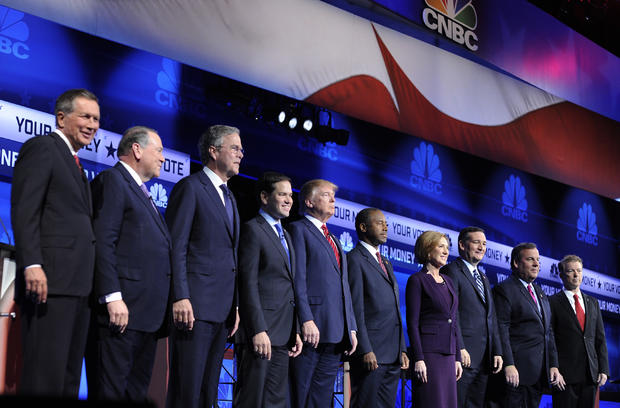A year from Election Day, still room for major change
A year from Tuesday, voters across the nation will choose the 45th president of the United States. If the current polls today are any indication, the two main candidates on the ballot will be Democrat Hillary Clinton and Republican Ben Carson (or perhaps Donald Trump).
Past election cycles have made it clear, however, that plenty can change in a presidential race over the course of one year.
The latest CBS/ New York Times poll shows Carson (at 26 percent) and Trump (at 22 percent) with commanding leads over the rest of the crowded GOP field. Yet at this point in the 2012 race, Republican voters were similarly backing a political outsider. And while Clinton seems like the obvious Democratic nominee for 2016, she also did at this point in the 2008 race.
Here's a look at how the current state of the race matches up to past presidential elections, one year out.
2011: Who was in the lead among Republicans?
Republican voters ultimately nominated former Massachusetts Gov. Mitt Romney to serve as their 2012 nominee, but in late October and early November, businessman Herman Cain was the clear front runner.
In a CBS News/ New York Times poll released on Oct. 25, 2011, Cain led Romney, 25 percent to 21 percent. Cain gained notoriety with his 9-9-9 tax plan - a proposal to replace the existing tax code with a 9 percent flat income tax, a 9 percent corporate tax and a 9 percent national sales tax. He gained the lead in October 2011 with the support of Tea Party conservatives, though only 32 percent of Republican primary voters said they would enthusiastically back him if he were the nominee.
Coincidentally, Cain spent much of October 2011 on a book tour rather than on the campaign trail -- just as current GOP front runner Ben Carson did last month.
By November 11, 2011, Cain's support had fallen to 18 percent, according to a CBS/NYT poll, while Romney found himself tied with former House Speaker Newt Gingrich at 15 percent. Voters at this point were starting to learn about allegations of sexual harassment against Cain from the 1990's, and nearly four in 10 Republican women in the poll said they were less likely to vote for Cain because of the allegations. Cain's momentum slowed significantly after that, and he suspended his campaign in early December 2011.
2011: What was most important to GOP voters?
At this point in 2011, many but not most Republican voters were very intent on defeating President Obama.
In the CBS/ NYT poll released Nov. 12, 2011, 58 percent of Republican voters said that having a GOP nominee who agreed with their positions on the issues mattered more than electability. However, nearly four in 10 said it was more important to nominate a candidate who had the best chance of defeating Mr. Obama.
At this point in the 2016 race, Republican voters are far less concerned about electability, even though Democratic front runner Hillary Clinton is a high-profile candidate largely disliked by the GOP (86 percent of registered Republicans have an unfavorable opinion of her).
The Oct. 27, 2015 poll from CBS and the New York Times asked a more open-ended question about the most important qualities in their choice of a nominee. Still, just 4 percent said it was most important to nominate someone who's able to win the general election. A plurality of GOP voters said strong leadership (41 percent) is most important.
2007: Who was in the lead among Democrats?
In the 2008 election cycle, the Democratic nomination was Hillary Clinton's to lose -- and everyone knows how that turned out. While then-Sen. Barack Obama managed an epic upset to secure the candidacy, his campaign didn't really pick up speed until early 2008.
In the CBS/ NYT poll released October 11, 2015, Clinton leads Sen. Bernie Sanders of Vermont by 19 points.
At this point in the 2008 race, Clinton had an even more commanding lead. The CBS/ NYT poll released on October 25, 2007 showed that 51 percent of Democratic voters preferred Clinton over her Democratic rivals Obama and former Sen. John Edwards. That gave Clinton a 28-point lead over Obama.
2007: Who was in the lead among Republicans?
Like Mr. Obama, Sen. John McCain's 2008 presidential campaign didn't really take off until early 2008.
A year out from Election Day 2008, the most popular Republican candidate was former New York City Mayor Rudy Giuliani. In the CBS News poll released October 18, 2007, Giuliani garnered 29 percent support among Republican voters, while former Sen. Fred Thompson came in second with 21 percent. McCain won 18 percent support.
2004: Who was in the lead among Democrats?
John Kerry, currently President Obama's secretary of state, was the 2004 Democratic presidential nominee, but he was nowhere close to securing the nomination a year out from Election Day 2004.
A CBS News poll conducted Nov. 10-13, 2003 showed that Democratic voters at the time were largely undecided. Former Vermont Gov. Howard Dean led the poll with 14 percent, while former House Majority Leader Dick Gephardt won 12 percent support. Retired Gen. Wesley Clark and then-Sen. Joe Lieberman were tied at 9 percent, while Kerry received just 7 percent support.
Who's paying attention?
The CBS/ NYT poll released October 27, 2015 found that as many as 43 percent of registered voters are now paying a lot of attention to the campaign.
Around this point in 2011, about 70 percent of registered voters said they were paying at least some attention to the campaign, but just 31 percent said they were paying a lot of attention. In October 2007, just 24 percent of registered voters were paying a lot of attention.
The relatively high interest in the campaign at this point has been reflected in the high viewership of the debates so far.
The Tuesday night debate hosted by the Fox Business Network in Milwaukee, Wisconsin will be just the fourth GOP debate this year. Saturday's Democratic debate hosted by CBS News in Des Moines, Iowa will be the second out of a total of six scheduled Democratic debates.
In previous election cycles, far more debates had taken place a year out from Election Day: In the 2012 cycle, there had been nine GOP debates by Nov. 9, 2011. In the 2008 campaign, there had been 14 Democratic debates and 12 Republican debates before November 2007.
